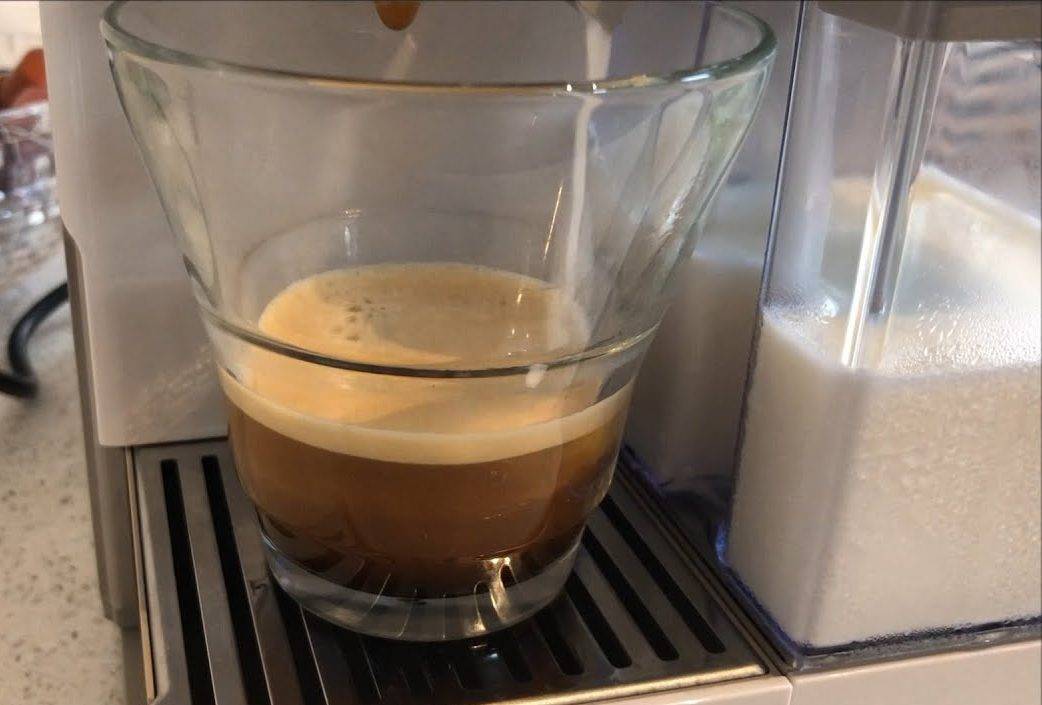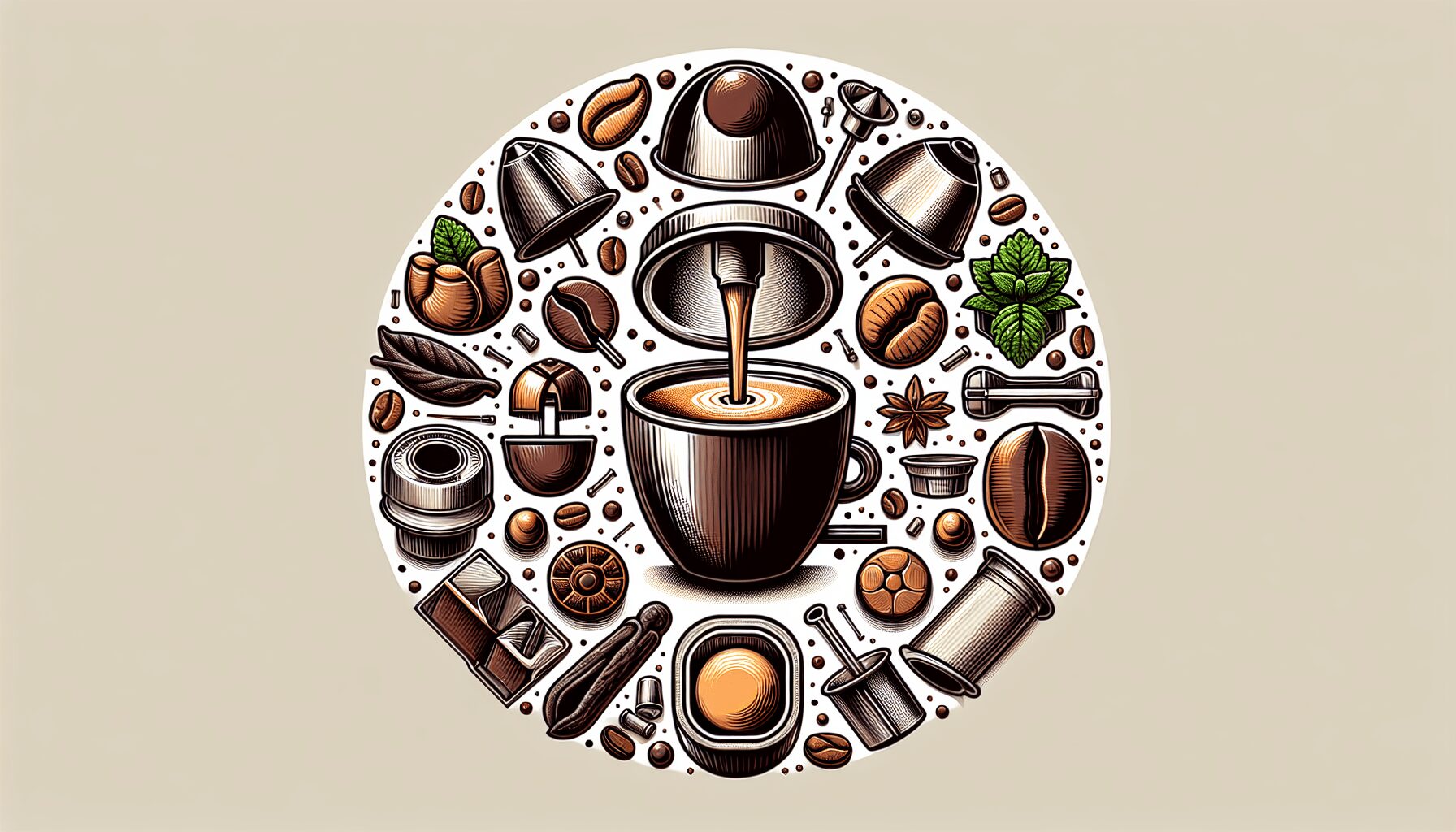Are you a coffee lover who relies on a Nespresso machine to jumpstart your day? If so, you may have wondered about the caffeine content in these convenient little capsules. In this article, we will explore just how much caffeine is in a Nespresso and whether it can provide the energy boost you need. So, grab a cup of your favorite brew and let’s unveil the secrets of your Nespresso‘s caffeine content together!
Understanding Nespresso
What is Nespresso
Nespresso is a popular brand of coffee machines and coffee capsules that offers a convenient and high-quality coffee experience at home or in the office. The brand, owned by Nestlé, has gained a loyal following due to its sleek and user-friendly machines and a wide variety of coffee flavors to choose from.
How are Nespresso capsules made
Nespresso capsules are meticulously crafted to ensure consistency and an excellent coffee drinking experience. The process starts with the selection of high-quality coffee beans from different regions around the world. These beans are then carefully roasted to bring out their unique flavors and aromas.
After roasting, the coffee is ground to a specific particle size and then carefully measured and sealed into individual capsules. The capsules are designed to preserve the freshness and flavor of the coffee. Nespresso capsules are made of aluminum, which protects the coffee from air, light, and moisture, maintaining its quality until it is brewed.
Factors Affecting Caffeine Content
Coffee Blend
The coffee blend used in Nespresso capsules plays a significant role in determining the caffeine content. Different blends can have varying amounts of caffeine. For example, blends made with Robusta coffee beans generally have higher caffeine content compared to those made with Arabica beans. Robusta beans contain about two times more caffeine than Arabica beans.
Coffee Roast
The degree of coffee roast can also affect the caffeine content. Generally, the longer the coffee beans are roasted, the lower the caffeine content becomes. This is because the roasting process breaks down the caffeine molecules, resulting in a decrease in its concentration. Therefore, darker roasts, such as an espresso or ristretto, tend to have slightly less caffeine than lighter roasts, like lungo or Americano.
Coffee Capsule Size
The size of the Nespresso capsule also has an impact on the caffeine content. Different capsule sizes contain varying amounts of ground coffee, which directly affects the caffeine concentration in the final cup. Larger capsules, such as those used for lungo, generally have more coffee and therefore slightly more caffeine compared to smaller-sized espresso capsules.
Water Volume
The amount of water used for brewing also influences the caffeine content of a Nespresso coffee. Nespresso machines have pre-set water volumes for different coffee sizes. For example, an espresso shot typically requires less water than a lungo. As a result, the concentration of caffeine in the final cup can vary depending on the water volume selected.
Brewing Time
The brewing time can impact the caffeine extraction during the Nespresso brewing process. Nespresso machines have controlled and automated brewing times for each coffee size, ensuring consistency. However, the longer the coffee is in contact with water, the higher the caffeine extraction. Therefore, lungo coffees, which have a longer extraction time, may have slightly higher caffeine content compared to espressos with shorter extraction times.
Typical Caffeine Content in Nespresso Capsules
Espresso Capsules
Espresso capsules, the smallest option in the Nespresso range, typically containing 5 grams of coffee, deliver a concentrated and flavorful shot of coffee. On average, an espresso capsule contains approximately 50-80 milligrams of caffeine. However, it’s essential to note that the specific caffeine content may vary depending on the factors mentioned earlier.
Lungo Capsules
Lungo capsules, designed to produce a longer coffee, generally contain more coffee than espresso capsules. They typically contain around 7 grams of coffee, resulting in a milder and more extended cup of coffee. The caffeine content in lungo capsules can range between 70-110 milligrams, again depending on the coffee blend, roast, and other factors.
Caffeine Content Range in Nespresso Capsules
Variation among Different Capsules
It’s important to highlight that Nespresso offers a wide range of different coffee capsules, each with its own unique flavor profile and caffeine content. The caffeine content can vary significantly not only between espresso and lungo capsules but also within the same category due to differences in coffee blends, roasts, and other factors. Therefore, it’s always a good idea to read the descriptions and check the packaging or Nespresso’s official website for specific information regarding the caffeine content of each capsule.
Official Nespresso Caffeine Guidelines
Nespresso provides general guidelines regarding the caffeine content of their coffee capsules. However, these numbers should be considered approximate, as variations in brewing parameters can affect the final caffeine extraction. According to Nespresso, an espresso shot typically contains around 55-65 milligrams of caffeine, while a lungo coffee may have approximately 77-89 milligrams. It’s worth noting that these values are averages, and the actual caffeine content can fall within a broader range.
Specialty Variations and Limited Editions
Variations in Caffeine Content
In addition to their regular coffee range, Nespresso introduces specialty variations and limited edition capsules throughout the year. These unique blends often offer distinct flavors and intensities. While some specialty variations may have similar caffeine content to their regular counterparts, others may contain higher or lower amounts of caffeine.
Examples of Specialty Variations
Nespresso periodically releases limited edition capsules, such as flavored blends or collaborations with renowned coffee experts. For instance, they might offer a seasonal flavored coffee with hints of cinnamon, vanilla, or even chocolate. These limited-edition capsules provide coffee lovers with the opportunity to explore new flavor profiles while enjoying their preferred caffeine content.
Health Considerations
Recommended Caffeine Intake
It’s important to keep in mind that the Food and Drug Administration (FDA) recommends a daily caffeine intake of no more than 400 milligrams for healthy adults. For pregnant women or individuals with certain health conditions, the guidelines may suggest a lower caffeine consumption or complete avoidance. It is always advisable to consult with a healthcare professional about your specific dietary needs and restrictions.
Sensitive Individuals
Some individuals may be more sensitive to caffeine than others. If you find yourself being particularly affected by caffeine, such as experiencing sleep disturbances or feeling unusually jittery, it may be wise to moderate your intake or opt for decaffeinated options.
Pregnancy
During pregnancy, experts generally recommend limiting caffeine intake to 200 milligrams or less per day. Since caffeine can cross the placenta and affect the developing fetus, it’s crucial to follow medical advice regarding caffeine consumption during this sensitive period.
Alternative Caffeine Content
Decaffeinated Nespresso Capsules
For those who enjoy the taste of coffee but wish to limit their caffeine intake, Nespresso offers a range of decaffeinated coffee capsules. Decaffeinated coffee undergoes a process to remove most of the caffeine content while retaining the flavors and aromas. Decaffeinated Nespresso capsules typically contain less than 2 milligrams of caffeine per serving, making them a suitable choice for individuals who are sensitive to caffeine or prefer to consume it in smaller amounts.
Complementary Coffee Beverages
Nespresso machines also provide the opportunity to create delicious coffee-based beverages by combining the brewed coffee with milk or frothed milk. By adding milk to your espresso or lungo shot, you dilute the caffeine content per milliliter of the final beverage. For those looking for a milder coffee experience, incorporating milk into your Nespresso drink can be an effective way to reduce the overall caffeine intake.
FAQs
Is Nespresso Stronger than Regular Coffee?
The strength of coffee is subjective and can depend on personal taste preferences. However, Nespresso capsules are known for their rich and intense flavor profiles. This flavor intensity is achieved through careful coffee selection, precise roasting techniques, and the optimal brewing parameters of a Nespresso machine. While the overall coffee experience can be similar to regular coffee, Nespresso often provides a concentrated and bold cup of coffee in a shorter brewing time.
Can I Adjust the Caffeine Content?
Nespresso machines have pre-set water volumes and brewing times for each coffee size, which means you cannot directly adjust the caffeine content. However, you can indirectly influence the caffeine content by selecting different capsule sizes, blends, roasts, or adding milk to your coffee, as mentioned earlier. These choices allow you to customize your Nespresso experience and find the perfect balance of flavor and caffeine for your preferences.
Is There Caffeine in Nespresso Decaffeinated Capsules?
Although Nespresso’s decaffeinated capsules undergo a process to remove most of the caffeine, trace amounts may still be present. Nespresso decaffeinated capsules typically contain less than 2 milligrams of caffeine per serving, which is significantly lower compared to regular capsules. However, it’s essential to note that caffeine sensitivity can vary among individuals, and some may still experience slight effects from consuming decaffeinated coffee.
Conclusion
Understanding the caffeine content in Nespresso capsules is essential for choosing the right coffee experience that aligns with personal preferences and dietary needs. Various factors, such as the coffee blend, roast, capsule size, water volume, and brewing time, can influence the caffeine content in your cup. By considering these factors, you can tailor your Nespresso experience to suit your desired caffeine intake, flavor preferences, and health considerations. Whether you enjoy a robust espresso shot or a milder lungo coffee, Nespresso offers a range of options that cater to different tastes and caffeine requirements. So, explore the variety of Nespresso capsules available and embark on your perfect coffee journey!



